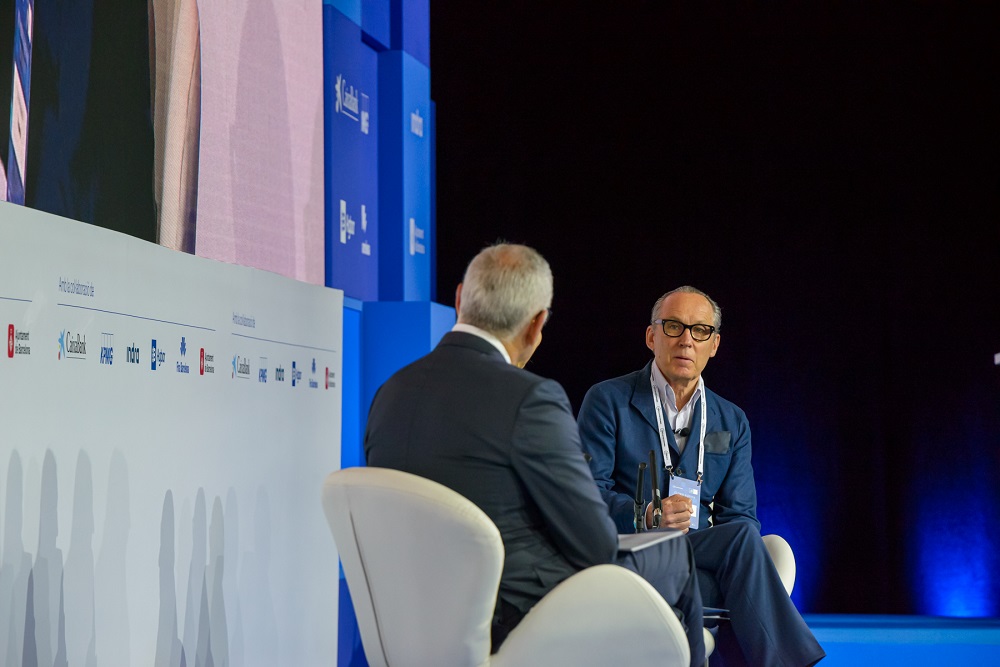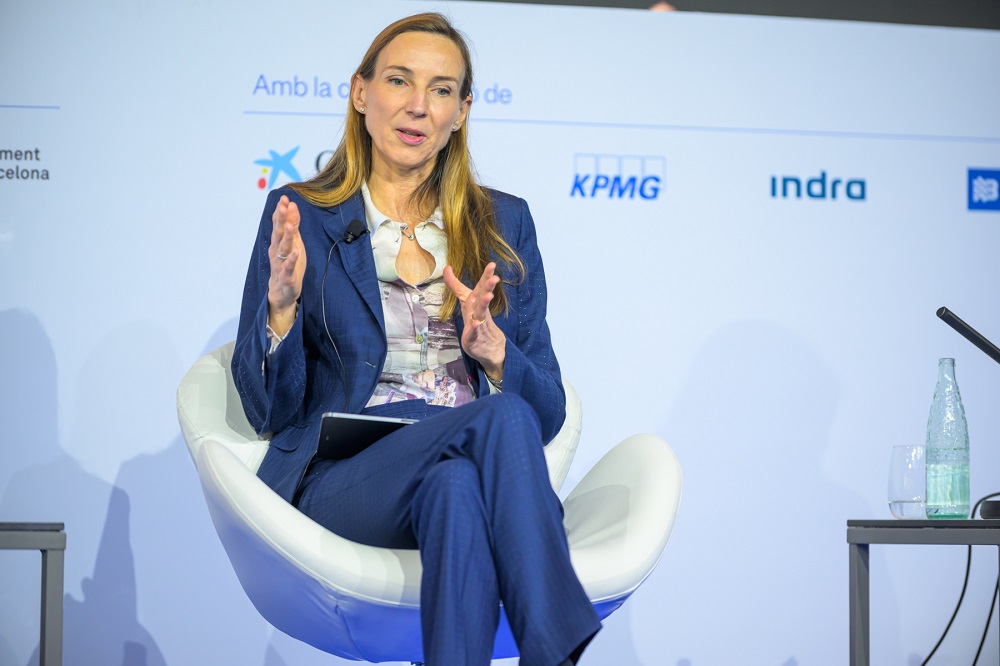Marc Puig (member of the Board of Directors of Cercle d'Economia) introduced the round table saying that the stories of Henkel and Zegna illustrate the importance of having structured transitions, balanced governance and maintaining the family's commitment to sustaining family businesses generation after generation. He indicated that both companies underscore the need to combine family values with professional direction to ensure long-term success and good adaptability to the global market.
In his speech and before giving way to the speakers, Marc Puig admitted that "family businesses generate a lot of interest among the members of the Cercle d'Economia, and that makes perfect sense in a region of the world that is built on family businesses". He specified that 60% of European companies are family businesses and evoked a popular phrase - "the founder starts a business, the second generation makes it grow and the third generation often destroys the business - to highlight that "fortunately today we have three examples that have gone beyond the third generation".

The transition from one generation to the next: foresight and confidence
Ermenegildo (Gildo) Zegna, Chairman and CEO of Zegna Group, has been at the helm of the family business for 27 years, being the third generation, and Simone Bagel-Trah, Chair of the Shareholders' Committee and the Supervisory Board of Henkel, has been in the position for 15 years. The moderator admitted that he himself has been CEO of Puig for 20 years and highlighted that "the biggest challenge for a family business is the moment to make a generation transition". From a general perspective, he referred to the companies that have gone public: "When a new CEO is appointed, it is someone who is very consolidated in the company's sector of activity, so the mechanism is established with a lot of foresight and a lot of determination."
As Bagel-Trah explained, at Henkel, in 1986, when the company went public, it was decided to limit the participation of the management team by the family. The company has an external CEO and a board of directors balanced between family members and independent directors: "They are professionals from different regions and different industries, who pose very interesting challenges for the company," he said. The board of directors, and therefore the family, "decides everything that is important": i.e. mergers and acquisitions, strategy, company culture or election of new board members.
Marc Puig wanted to give his opinion on the case of Henkel and to express that the fact of limiting access to management to relatives is considered one of the successes in the history of this company. He did so to recognize that the option put into practice by Henkel inspired him to make the same decision, a few years later, in the specific case of Puig, when the company was the same size as Henkel in 1986.
As for the story of her predecessor's replacement, Simone Bagel-Trah recalled that a group of fifteen people from her generation were invited to perform. Meetings were organized that "went very well to get to know each other better and establish a trust that would be very valuable years later." There were several processes and finally a vote between three candidates, in which she was chosen. He indicated that she maintains a "fantastic relationship" with the two cousins with whom she competed and thanks to that process, today they are figures with whom she has a close relationship and are of her absolute trust.
For his part, Gildo Zegna indicated that when he took over "there was friction", although he added that "luckily meritocracy has always dominated" and that conflicts have always been settled internally. The company he runs chose to create a board of directors with more independent members than family members, regardless of generation: "I have found a lot of value in independent directors because they have been great directors," he said. An external admissions committee was also established. Now, Gildo Zegna has two sons in the company: "They are there because they were chosen by a committee that assessed their talent objectively, they were better than the other external candidates," he said.

From the shareholders' agreement to the values and culture of the company
Simone Bagel-Trah also explained that Henkel has a shareholders' agreement. In fact, her first great challenge when she took office was the renewal of the pact, in 1996. On the other hand, she noted the importance of family cohesion: "We meet four times a year with the whole family and partners. And in addition, we have groups and committees for young people who are interested in participating in different aspects of the company. Twice a year we have a family meal and brotherhood activities, we are all cousins. We have uncles and aunts, and we want to stay together for them too. The children begin to integrate playing football together, when they are a little older they have scientific laboratories and when they grow up even more we offer them training on the challenges of new digital technologies, for example. Thus, we are progressively introducing them and they have the possibility of participating in the company. We are gradually training the partners of the future."
To conclude, Gildo Zegna shared with the audience the idea that "the most important thing for the company is the values and culture of the company, to be authentic. This is passed down from generation to generation. Passing the baton to a person who has talent and who will do it better than you."